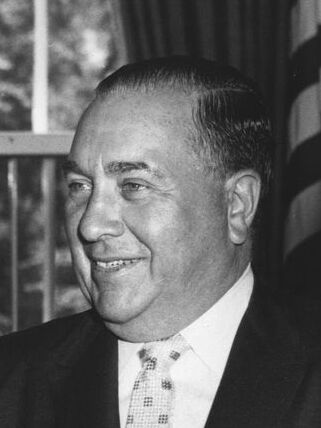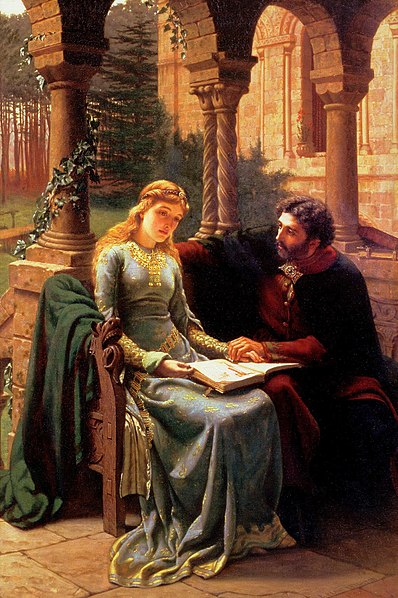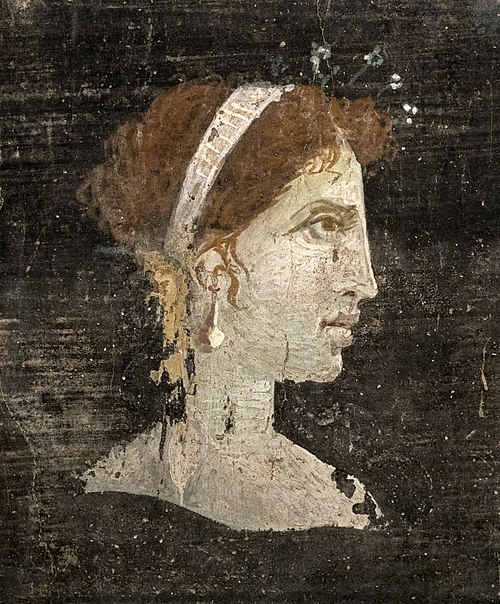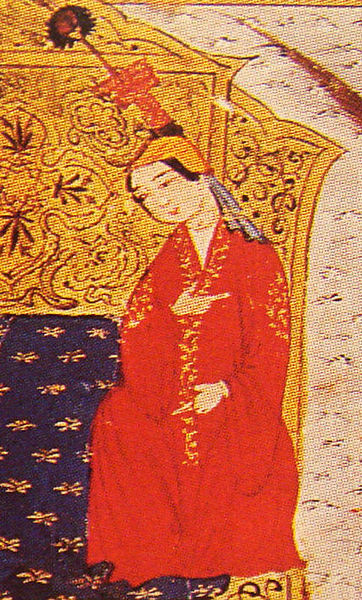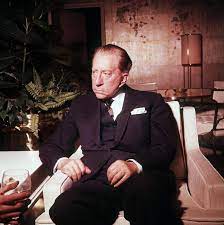
LEGITIMATE CHILDREN FURIOUS
June 6, 1976
Sutton Place, England
Jean Paul Getty, playboy billionaire, has died, and none of his legitimate children are getting his money.
He’s left his vast inheritance to the secret love child of his favorite mistress.
Throughout his five marriages, the promiscuous Getty has engaged in many affairs, but has continuously returned to one paramour: his art collection. Smitten by her style and beauty, under her influence for years, he has now willed away his wealth to their child, whom he’s never seen.
The result of their union is in fact a Roman villa on the cliffs of Malibu, California, known as the J. Paul Getty Museum.
This love nest is now the richest little spoiled brat in America, basking in billions in the sunshine of southern California, while Getty’s legitimate children are out in the cold.
But seriously…
October 31, 2022
The life and the legacy of J. Paul Getty were defined by inheritance.
His life was dedicated to amassing money.
His legacy derived from how he gave that precious money away.
Getty was thirty-seven years old, and already a millionaire, when his father died and left his millions, earned in the Oklahoma oilfields, to his wife, not his only son. He received $250,000, which an ordinary person would be happy with. But Jean Paul Getty was no ordinary person. He was insulted that dad hadn’t trusted him with his money.
He took it as a challenge. And so his quest to become uber-rich began.
Claus von Bülow, his chief executive, said he spent the rest of his life proving himself against his father’s judgment.
“Dad was going to eat his words. And when that is your attitude, it becomes an obsession.”
Malibu
His legacy was cemented when he willed his personal fortune of $750 million to the J. Paul Getty Museum in Malibu, California. The museum was the result of his passion for collecting rare works of art and French eighteenth-century furniture. He had never visited the museum himself, and he hadn’t notified the trustees of the gift.
Art critics derided it as “Pompeii on the Pacific,” a monstrosity of marble harking back to the Roman empire- an odd look for a museum of fine art. Why did Getty choose this design?
He modeled it on the Villa dei Papiri (Villa of Papyrus) which was preserved, with its library of papyrus rolls intact, when Mt. Vesuvius erupted. It was owned by a Roman named Calpurnius Piso. A frequent visitor was the emperor Hadrian.
And Getty believed- or at least wanted to believe- that he was Hadrian reincarnated.
He also believed that when he, Hadrian, rebuilt the Roman Pantheon in A.D. 120, he was too modest in placing in massive letters on the pediment the name of Marcus Agrippa, its original founder. He, the reincarnated Hadrian, wouldn’t make that mistake again.
The Spendthrift Trust
The $750 million was a small part of the fortune Getty accumulated.
There was another, even bigger fortune being salted away, day after day, year after year.
This was the Sarah C. Getty Trust, named after his mother, who wanted to leave something for her grandchildren. She called it the Spendthrift Trust, because she wanted a hedge against her son’s spendthrift ways, a rich irony considering what a skinflint he would become. Still, she trusted him enough to make him caretaker of the trust.
It began with $3.5 million- his father’s inheritance, now in his hands. It wasn’t his money, but he made the most of it. Almost like a game, he used the trust to fund his business; he would then plow the profits back into the trust, where it was untouched by spending or taxation.
At his death, the trust was worth billions.
Getty introduced one characteristic twist: Ronald, his son from wife number two, only received an annual $3,000 payment. This was because, when she divorced him, her father got involved and was able to extract more in the divorce settlement than Getty thought appropriate. This man had beaten him in a business deal, and his grandson (Getty’s own son) would pay.
So, Paul got the better of everyone, but maybe not: he put his on the museum, but Sarah’s name is on the trust.
Dynasty
Getty had five sons, the product of five abbreviated marriages.
Each boy was raised by his mother, far from his presence, from his money, and, apparently, from his thoughts. (He also had a daughter from an early affair.)
Wife number four complained that he had “no interest in his sons until they were old enough to take their places in his precious dynasty.”
Each boy would, in turn, be contacted by his rich father when he came of age, to work in one of the satellites of his far-flung business empire, either in Los Angeles, Rome, or Saudi Arabia.
The boys were thus introduced to their father, a man who didn’t buy anything unless it would appreciate in value, who owned an aircraft factory but was afraid to fly, and who refused to marry a sixth time because, he claimed, a fortune teller in New Orleans told him that if he did he would die. A man who installed in his mansion, Sutton Place, a pay phone for guests.
He was all business.
George, his oldest, referred to his dad as “Mr. Getty.”
Obsession
The man they now worked for was monomaniacal at making money.
His pal Jack Dempsey, the world heavyweight champion, said,
“I’ve never met anyone with such intense concentration and willpower – perhaps more than is good for him.”
He ran his oil empire out of hotel rooms, his favorite being Hôtel Georges V in Paris, where he dickered over the price, and washed his own socks. His parsimony included his time as well as his money; he would respond to a letter by scribbling a reply in the margin and mailing it back in the readdressed envelope it came in.
He traveled with a steamer-trunk which carried all necessary business documents, and a little black book which never left him, which held the numbers of business contacts and girlfriends.
Meticulous in everything, frugal, a man of routines, in 1948 he showed the world another quality: daring.
He gambled everything that there was oil under the sand in a place called the Neutral Zone, between Saudi Arabia and Kuwait. He made a deal that everyone said was crazy. He gave the Sultan of Kuwait and the King of Saudi Arabia a $20 million down payment, and promised them 40 percent of each barrel of oil produced, plus $1 million dollars each per year, even if no oil was discovered. He made the deal, sight-unseen, after the single geologist he sent to survey the area by air sent a simple cable: Structures indicate oil.
He would end up spending on logistics 200 times what his father had made in a lifetime. Dad had been a multi-millionaire; Paul would make billions.
Always Leaving
“Paul was always leaving, for somewhere.”
That was the observation of wife number five.
She wasn’t kidding. They were married during WWII by the mayor of Rome in the Campidoglio, the Roman Capitol. They then lunched at the Ambassador Hotel, after which he immediately caught a train to Naples, and sailed for New York, leaving her in Rome, where she was rounded up by the Italian authorities and interned.
Getty summed up his philosophy with cold clarity:
“A lasting relationship with a woman is only possible if you’re a business failure.”
In 1958 his twelve-year-old youngest son, Timmy, had to have surgery in New York. He had had a brain tumor removed, leaving him half blind. He was about to undergo cosmetic surgery to remove the scars on his forehead.
Timmy wrote to him, “I want your love Daddy and I want to see you.”
He telephoned his dad every day, begging him to come see him.
Every day, dad explained that he could not.
On the day of the operation, he was visiting an art collector. He returned home four days later and received the news from wife number five: Timmy had died.
Getty installed his son, Paul Jr., as an executive at Getty Oil Italiana in Rome. He and his second wife, Talitha, living the high life in Rome in the 1960’s, became aficionados of heroin.
When told about his son’s drug habit, Getty said,
“No Getty can be a drug addict.”
Dad was disgusted by drug addiction. Just as his devoutly religious parents had not approved of his libertine lifestyle, J. Paul Getty looked down on the drug use of his children. He never seemed to understand how difficult it was to be the son of someone so brilliant, demanding, and cold.
Talitha died of an overdose at age 29. Twelve days later J. Paul Getty cut Paul Jr. out of his will, leaving him an insulting $500.
Dad refused to have any contact with son until he kicked the habit.
So it was that, when Paul Jr.’s son- Getty’s first and favorite grandchild- was kidnapped in Rome, grandpa wouldn’t take the boy’s mother’s frantic calls, and Paul Jr. didn’t even try contacting him.
He famously refused to pay the $17 million ransom, offering impeccable logic:
“I have fourteen grandchildren, and if I pay a penny of ransom, I’ll have fourteen kidnapped grandchildren.”
Getty had another reason for not answering the phone. Eight months earlier in Paris, the Mossad had assassinated Mahmoud Hamshari of the PLO by placing a small bomb in his apartment, triggered when he answered his phone.
While his favorite grandson was held captive in squalor in Italy, Getty was himself captive in luxury, paranoid and increasingly isolated, with fearsome Alsatians prowling the grounds, and a bullet-proof plate on his bedroom door.
Eccentric
In his callous disregard for his progeny, Getty comes across as a monster, but maybe he was not so much a monster as a freak. The man had a singular genius for making money and he used that gift to provide for posterity in his own way. His children would have to understand, he was not an ordinary man.
Just two months before Getty expired quietly in his armchair, Howard Hughes died, his death attended by drama, intrigue, and controversy.
Hughes was known as the most eccentric billionaire in the world.
While J. Paul Getty, who preferred to live under the radar, couldn’t match the attention-grabbing Hughes for drama, when it came to eccentricity, he gave him a run for his money.
Sources
The House of Getty, Russell Miller
All the Money in the World, John Pearson
Growing Up Getty, James Reginato
